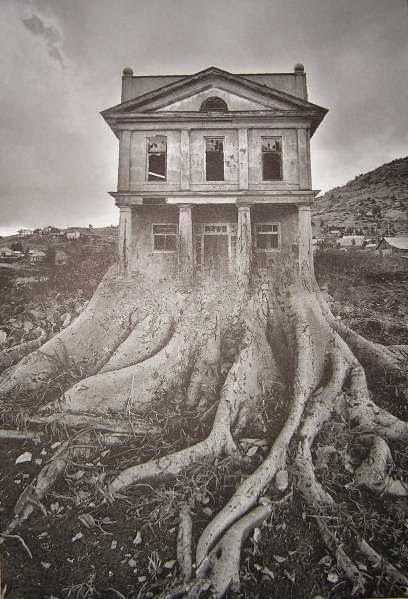Bram Stoker published Dracula
in 1897, he brought the folklore about vampires into the mainstream
culture. In the two centuries that followed, stories about these
blood sucking, undead creatures became the centre stage for many
books and movies. Over the years, the image of vampires has evolved,
from scary and brutal monsters, into exotic and sexy superhuman
(which has become the predominant image for vampires in today's
popular culture).
Personally, I am not a fan of these
modern-day, exotic interpretations on vampires. In my opinion,
vampires are supposed to be scary and evil. Instead of being
champions for love in romantic novels, vampires should be nightmarish
creatures playing the role of antagonists in horror stories. This is
why I adore Stephen King's book, Salem's Lot. I think this is
what a “real” vampire novel should read like. Let's have a
further look at this book.
Synopsis:
The Martsen House, a derelict building
with a sinister reputation, squatted on a hill, overlooking at the
sombre town of Jerusalem's Lot. Meanwhile, its terrible past, lie
buried and forgotten from the minds of the town's populace.
For decades, the people of Jerusalem's
Lot lived in disquiet peace, going about their own businesses. One
day, Kurt Barlow, an immigrant from Austria, treaded into the town.
He purchased the Martsen House and opened an antique store. Barlow
himself was barely seen in the town, only his business partner,
Richard Straker, appeared in public. After the duo's arrival, people
began to disappear under mysterious circumstances, a once quiet town
gradually fell into a deadly silence. Underneath this silence, is a
growing trend of a lurking horror.
Who, or what is behind these strange
disappearances?
What I think about this book:
This book is scary, really scary. I
read this book in 4 nights, usually after work. This book is so scary, that I developed the habit
of closing the windows in my apartment while I was reading this book.
What made this book truly terrifying, is not the vampires, violence
or the gore, but the creepy, sinister atmosphere that constantly lurks in the
background in each page. For example, in this book, there is a
sub-plot about a woman who was unhappily married, and often vented her
anger by secretly abusing her 10 months old baby. The way this
sub-plot is portrayed in the book, creates an atmosphere that is
equally as sinister as the terror emanating from the main plot, which
is the secret in the haunted Martsen House. These evils, are locked
away in the vault of secrecy, festering under the guise of a
disquieted peace. It makes a reader think twice about the reality of
evil, and what may lie hidden underneath the cycles of everyday life for ordinary people.
Some have complained, that the pace of
the book is slow. Admittedly, Stephen King did spend the first 200
pages to setup the premise of the story. He ventured into details,
describing the daily lifestyle of town people in Jerusalem's Lot. He
also spent a good chunk of his time, to build up the background story
for the protagonists. Personally, I did not mind the first 200 pages.
I actually enjoyed the first 200 pages, because Stephen King vividly
described the lives of these town people with masterful storytelling.
In my opinion, the first 200 pages of this book is important, it is
told at a good pace, allowing a reader to become attached to the town
people, such that when the town people began to disappear in large
numbers, a reader can feel how tragic and sinister this outcome truly
is. Once the book passed the 300 page mark, the pace of the book
quickened, as a surge of terror electrified the story all the way to
the closing chapter.
Stephen King explored the topic of
religion and faith in some of his books. Salem's Lot is one of
them. In one of the scenes, a terrifying, ancient vampire challenged
a priest to throw away his holy cross, then face the vampire by relying on his faith,
instead of relying on a religious object. I thought that was a rather
interesting comment about the nature of religious belief. It seems to
me Stephen King was implying that all the sacred "stuff" is pointless if one does not have faith. In my opinion, Stephen King
has hit the nail on its head, digging straight to the heart of Christian faith. I think this
is a good example, showing that not all horror stories/books are
meaningless nonsense as some in the Christian community tend to
believe.
I enjoyed Salem's Lot. This is
one of the classics belonging to the genre of horror fictions. It is
appropriately scary, as a vampire novel should be. When you read this
book in the deep of a starless night, as you hear strange outside noises,
perhaps you too would feel the urge to fasten the bolt for your window.
Vampires aren't real... or are they?



No comments:
Post a Comment